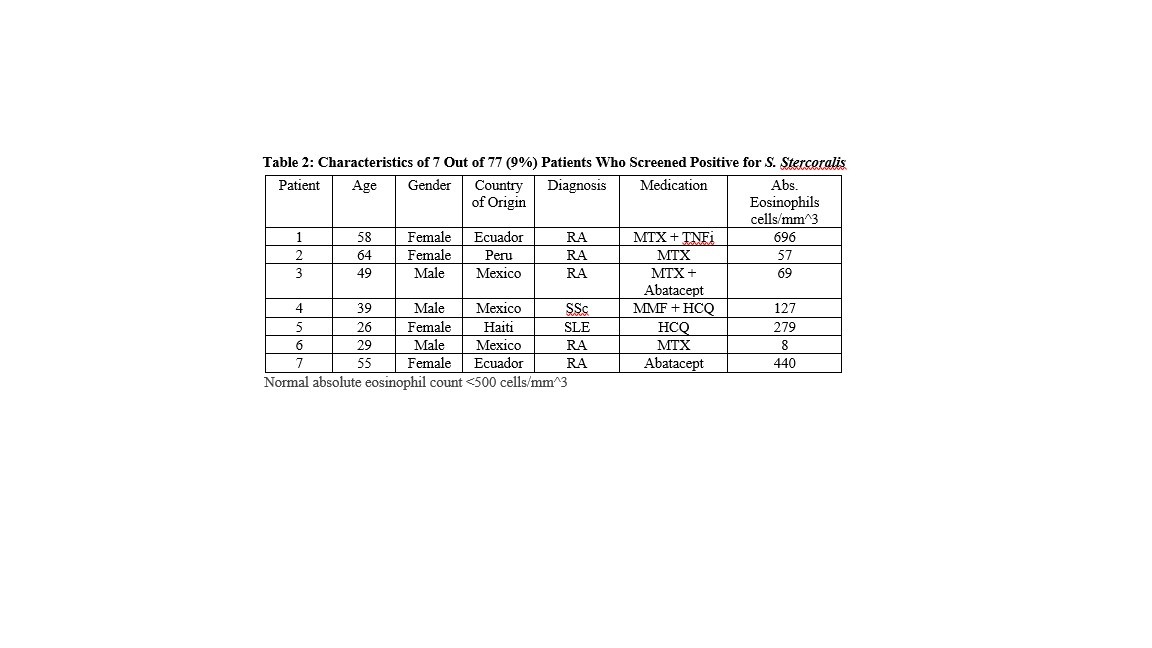Session Information
Session Type: Poster Session A
Session Time: 10:30AM-12:30PM
Background/Purpose: Strongyloides Stercoralis is a human intestinal nematode widely found in tropical and subtropical regions that frequently causes chronic and asymptomatic infection (Table 1). Immunosuppression in a host infected with strongyloides can lead to helminth dissemination and patient fatality. Our goal is to determine the prevalence of strongyloides antibodies in patients from endemic areas who are at risk of dissemination and offer a timely treatment.
Methods: This is a single center cross-sectional study conducted from January to June 2024 at a large academic medical center. Inclusion criteria included subjects from strongyloides endemic areas with rheumatologic diseases prior to or after initiation of immunosuppressive therapy. Screening was performed via serum IgG-antibody by ELISA at Mayo Clinic Laboratories. Patients with positive results were treated as per CDC protocol (Ivermectin 200ug/kg/day for four days). Patient’s clinical data including absolute eosinophilic count and demographics were collected.
Results: A total of 77 patients were screened. Seven patients (9%) were found to be serum IgG- antibody positive for strongyloides. A majority of the positive patients were on conventional DMARD monotherapy (57%), 28.5% were on conventional and biologic DMARD therapy, and 14% received sole biologic DMARD treatment. One positive patient with active arthralgias was found to have an elevated eosinophil count. All other positive patients had normal eosinophil counts and were asymptomatic (Table 2).
Conclusion: Our study found a significant percentage of patients with rheumatic disease who are positive for strongyloides antibodies. Screening of patients from endemic regions prior to initiation of immunosuppressive therapy can prevent serious consequences of dissemination. Absolute eosinophil count does not appear to be a reliable screening test for strongyloides.
To cite this abstract in AMA style:
Bhatti J, Lee K, Yedla A, Ash J, Miceli J, Sperber K, Wasserman A. High Prevalence of Strongyloides Antibodies in Patients at Risk for Dissemination. A Call for Action [abstract]. Arthritis Rheumatol. 2024; 76 (suppl 9). https://acrabstracts.org/abstract/high-prevalence-of-strongyloides-antibodies-in-patients-at-risk-for-dissemination-a-call-for-action/. Accessed .« Back to ACR Convergence 2024
ACR Meeting Abstracts - https://acrabstracts.org/abstract/high-prevalence-of-strongyloides-antibodies-in-patients-at-risk-for-dissemination-a-call-for-action/


